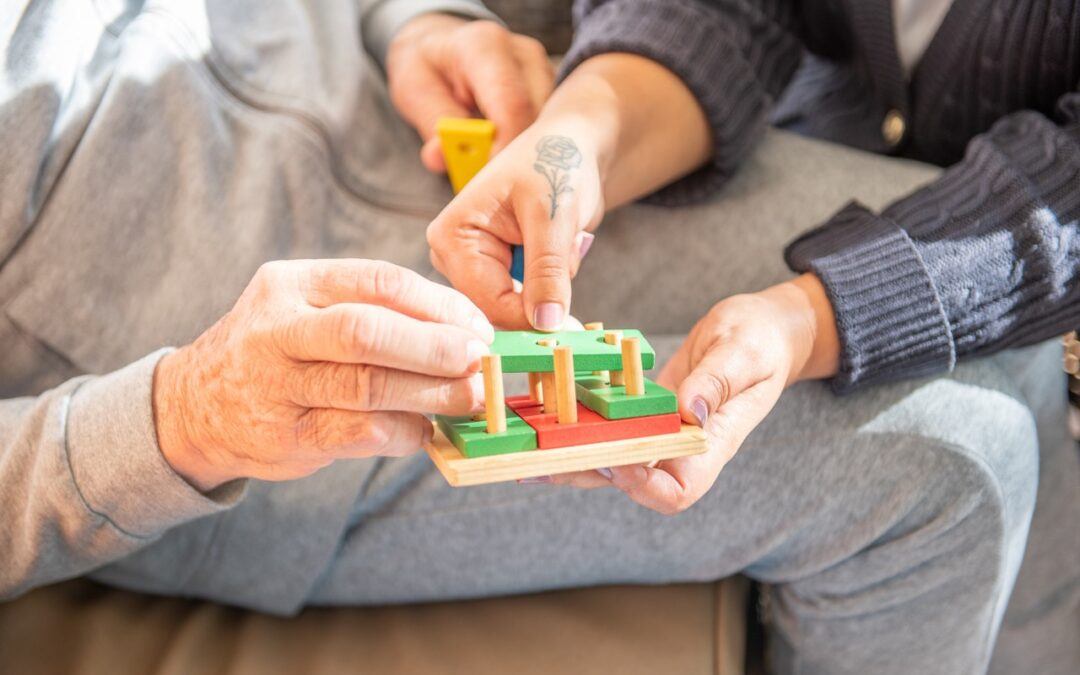Caring for a loved one with dementia is an emotional journey that can be both rewarding and challenging. As families navigate the complexities of providing specialised dementia care, they often find themselves grappling with a rollercoaster of emotions. In this blog post, we’ll explore the unique emotional challenges faced by families of dementia patients and provide valuable coping strategies, self-care tips, and insights into how specialised care providers, such as Livewell Estates, prioritise the emotional well-being of both our residents and their families.
Understanding the Emotional Challenges
The emotional challenges of dementia care begin the very moment you receive the diagnosis for your loved one. Learning that someone you care deeply about is facing a condition like dementia can be a profoundly emotional experience. Feelings of shock, disbelief, and fear often surge to the forefront as you grapple with the reality of the diagnosis. Uncertainty about the future, concerns about their well-being, and the anticipation of the changes that lie ahead can create a whirlwind of emotions. This initial stage marks the start of a journey that will test your emotional strength and resilience, urging you to find ways to navigate the complexities of care while also addressing your own emotional well-being. Some of the emotions you may face are:
- Grief and Loss: The gradual changes in your loved one’s personality and memory can trigger feelings of grief and loss even before their physical passing.
- Frustration and Helplessness: The difficulty in communication and behavioural changes can lead to frustration and a sense of helplessness.
- Guilt and Anguish: Balancing caregiving responsibilities with personal life can induce guilt, and witnessing your loved one’s struggle can cause immense anguish.
- Isolation: Caregivers often feel isolated as they adjust to a new routine and may miss out on social interactions.
Coping strategies and self-care tips
Caregivers play an essential role in the journey of specialised dementia care, but the weight of this responsibility can take a toll on their emotional well-being. Coping strategies and self-care tips are not just beneficial; they are vital for caregivers to navigate the challenges they face. Caring for a loved one with dementia can be emotionally demanding, often leading to burnout, stress, and emotional exhaustion. By implementing coping strategies, caregivers can learn to manage the inevitable ups and downs of the caregiving journey. Equally important is self-care, which provides caregivers with the tools to prioritize their physical, mental, and emotional health. Through setting boundaries, seeking support, and dedicating time to their own well-being, caregivers can better cope with the demands of caregiving while ensuring they remain strong and resilient advocates for their loved ones.
- Seek Support: Don’t hesitate to lean on family, friends, or dementia support groups. Talking about your feelings can alleviate emotional burdens.
- Educate Yourself: Learning about dementia helps you understand what your loved one is experiencing and manage your expectations.
- Set Realistic Goals: Accept that you can’t control everything. Focus on providing comfort and companionship rather than trying to “fix” everything.
- Practice Mindfulness: Engage in mindfulness activities, like deep breathing or meditation, to stay present and reduce stress.
- Prioritize Self-Care: Taking care of yourself is vital. Maintain hobbies, exercise, and connect with friends to recharge.
- Delegate and Accept Help: Allow others to assist you with caregiving tasks. Accepting help doesn’t make you any less of a dedicated caregiver.
- Maintain a Routine: Establishing a consistent routine can help both you and your loved one feel more secure.
Supportive specialised dementia care
At our specialised dementia care facility, we are dedicated to providing a comprehensive and compassionate approach to care that truly makes a difference. Our commitment begins with a Person-Centered Approach, where our highly trained care providers understand that each individual’s journey is unique. We tailor our care approach to cater to their emotional and physical needs, ensuring that they are treated with the utmost dignity and respect at every step. With a focus on enhancing their quality of life, we offer engaging memory-care activities meticulously designed to stimulate them mentally and emotionally. These activities not only provide cognitive stimulation but also contribute to creating moments of joy and connection.
We recognise the emotional challenges that both the individual and their families face, and that’s why we offer support groups as part of our specialised care. We also understand the importance of caregivers’ well-being, which is why we provide Respite Care. This service allows families to take a break, recharge, and attend to their own emotional needs while their loved one is in capable and caring hands. With our specialised dementia care offerings, we aim to provide holistic support that caters not only to the physical needs but also to the emotional well-being of both the individuals in our care and their families.
Caring for a loved one with dementia is undoubtedly an emotional journey, but it’s a journey that doesn’t have to be travelled alone. By understanding the emotional challenges, implementing effective coping strategies, and seeking support, families can navigate this path with resilience and strength. Specialised dementia care providers play a crucial role in recognizing and addressing the emotional well-being of both patients and their families, ensuring that the journey is one marked by compassion, understanding, and connection. Remember, you are not alone on this journey – there is support and help available every step of the way.
